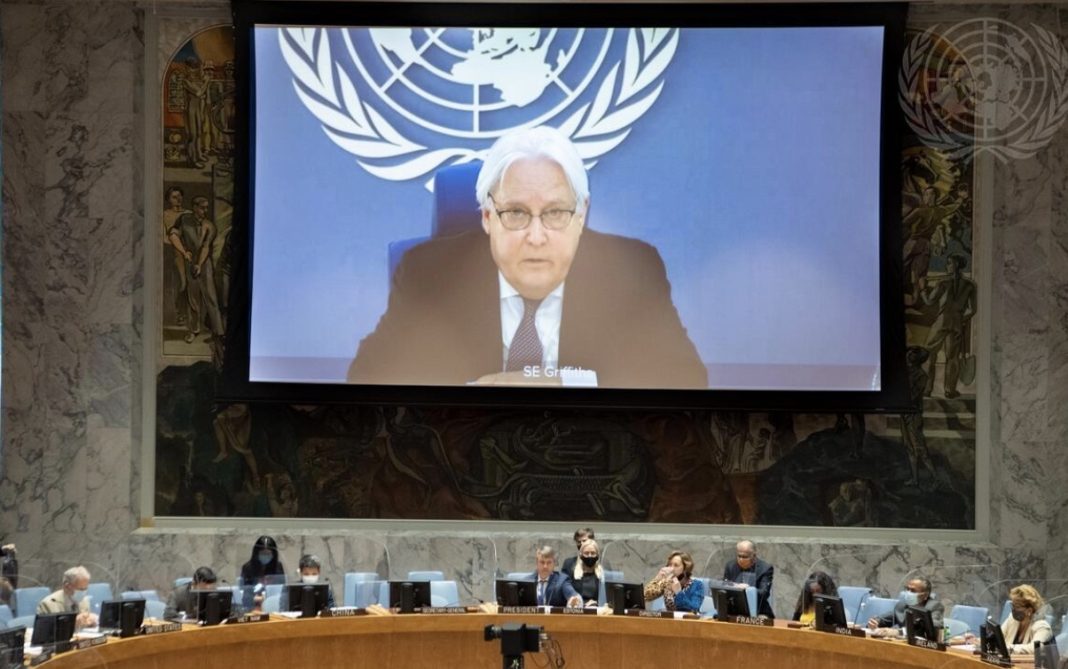By Janet Ekstract
ISTANBUL (TURKISH JOURNAL) – In a press conference on Monday, after a high-level ministerial meeting that pushed for humanitarian aid for Afghanistan, UN Secretary-General Antonio Guterres made it clear that engaging with the Taliban is crucial to the UN’s mission of delivering aid.
The Secretary-General said: “And I do believe that it is very important to engage with the Taliban at the present moment for all aspects that concern the international community, be it about terrorism, be it about human rights, be it about drugs, be it about the nature of the government; our attitude is to engage.” He reiterated that it is “impossible” to deliver humanitarian aid within Afghanistan without first engaging with the Taliban. To that end, Guterres said that Taliban leadership had assured Under-Secretary General for Humanitarian Affairs, Martin Griffiths in two letters, that they are committed to “not only guarantee our access to the whole territory, but also to provide security to UN convoys and reaching insecure areas.” The secretary-general added that Taliban leadership had also made some “encouraging statements” about crucial issues for the UN such as women’s participation in the workforce, specifically in humanitarian work and the rights of girls in all sectors and all levels of education. Guterres mentioned there were a number of other issues brought up as well as guaranteeing the safety of UN staff and a guarantee that UN areas would be protected. Griffiths had made a visit to Taliban leadership in Kabul, Guterres said to specifically discuss how best to get humanitarian aid to those who most need it.
The secretary-general emphasized that the high-level meeting was a success because there was “unanimous support” that this is the time for the international community to provide “effective” humanitarian assistance to the Afghan people. Guterres said Afghans are in a “dramatic humanitarian situation.” He added that all parties agreed that aid would need to be distributed safely and in full respect of humanitarian principles which include impartiality, neutrality, independence and that it should be needs-based. The aid he explained, would focus on the specific concerns about the participation of women and girls as well as the rights of women and girls within the context of the program of support and assistance to the Afghan people. Guterres said many new commitments and new financial commitments were pledged at the high-level meeting which he said was very encouraging.
Meanwhile, Guterres cautioned “we will now have to see what happens on the ground.” He said because the situation is “very complex” in Afghanistan, he said the UN wants to make sure that “humanitarian assistance is an entry point for an effective engagement with the Taliban in all other aspects of concern of the international community.” His reason for insisting the UN remain there Guterres said, has a lot to do with the UN commitment. As Guterres commented: “I decided that the UN should stay and deliver, with all the difficulties and all the unpredictable aspects of the future; that the UN should stay and deliver, and that it should use its traditional presence in Afghanistan – we are there since ‘47 and we were there in all moments, even during the other Taliban regime; that the UN should use its traditional presence in Afghanistan and its added value in humanitarian assistance to make humanitarian assistance the main factor of our intervention at the present moment.”
The secretary-general pointed out that the ministerial conference “is not an isolated act” but that it is a “clear strategy of the United Nations to respond to the crisis in Afghanistan, and in particular to assume leadership in relation to humanitarian assistance.” Guterres added that it was great to see the “UN family” come together to support the humanitarian appeal. He said other organizations and agencies will be going to Kabul to ensure that their specific areas are implemented in terms of humanitarian assistance. Guterres warned: “Humanitarian aid will not solve the problem if the economy of Afghanistan collapses.” He reiterated that the main goal is to prevent such a situation and stressed that the “risk is enormous” but that without proper cash inflow into the country, banks won’t be able to operate and even UN staff will not be able to get paid. He added that the Afghan economy must be allowed “to breathe” in order to salvage the economy there. So far, it is estimated that more than a billion dollars in pledges have been made for humanitarian aid and the secretary-general commented that the situation in Afghanistan is one that all governments around the world, international organizations and civil society are deeply concerned about. He said the fact that there were 156 participants from which 96 consist of Member States was significant. Guterres added that because there were also 33 international and regional organizations and 22 international NGOs, that this is a level of participation “that shows how much this is a crucial issue at the present moment for the international community.
.




